Walk Cheerfully
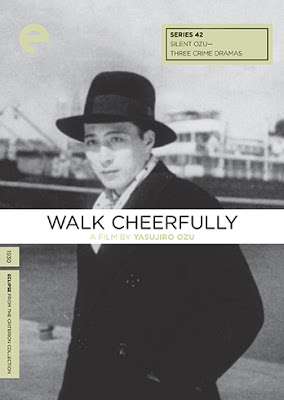
Director: Yasujiro Ozu
Year: 1930
Rating: 6.5
Silent
I am still delving into early Ozu. He was
only 26 years old at the time of directing this and already had thirteen
films behind him (most of which are lost). His Western influences are on
full display in this film but at the same time he weaves in his often used
theme of modernity vs tradition - played out by the two women in the film.
This same clash of values were in The Lady and the Beard (1931) and Dragnet
Girl (1933). And I think in different ways was to play a part in many of
his later films (but I have not gotten there yet). This is a gangster film
as was Dragnet Girl and That Night's Wife - all in a box set titled The Gangster
films. These gangsters are a pale comparison to those to come later in Japanese
film - generally small time hoods - and yet very much set apart from
Japanese society. Much of their time is spent in pool halls, boxing gyms
and looking for an easy score. Their women are of the same manner - broken
from their ties to family - wear Westernized garb, listen to modern music,
smoke and are sexually promiscuous.
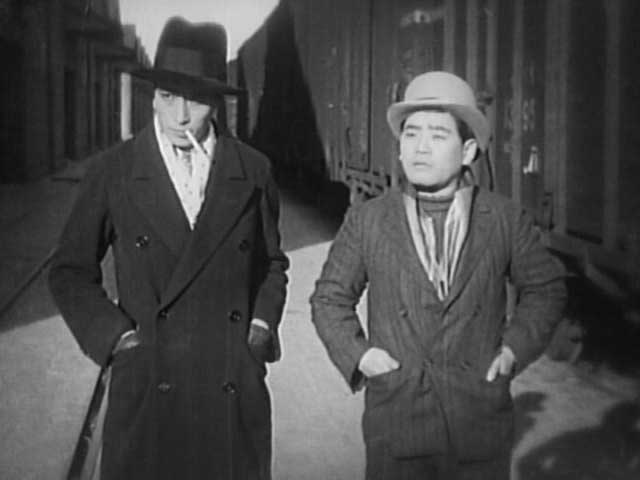
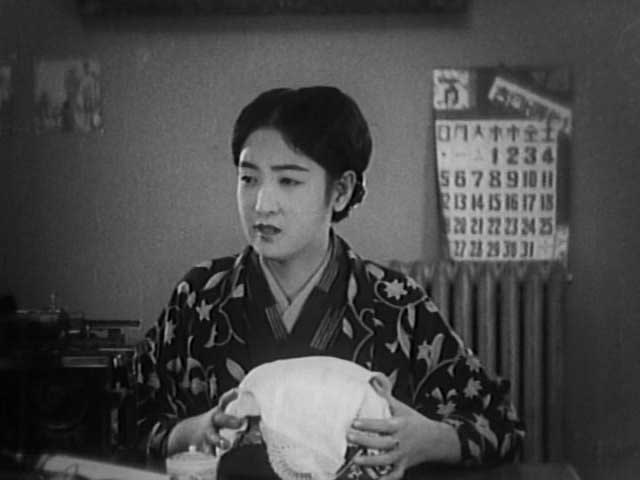
This film falls neatly into this milieu
and has a plot that is fairly simplistic and generic - at least now. Kenji
(Minoru Takada) heads up a small group of petty thieves with his friend Senko
(Hisao Yoshitani), the moll Chieko (Satoko Date) and Gunpei (Teruo Môuri).
They are small potatoes in the gangster world committing small time crimes.
We meet Senko being chased by a group of men (in a tracking shot) for stealing
a wallet. They catch him and are heading towards a brawl when a well-dressed
man walks through the crowd and says "let's search him". They do and find
nothing. A little later Senko walks away and picks up his pace to be side
by side with that well-dressed man - who is Kenji. Pretty slick.
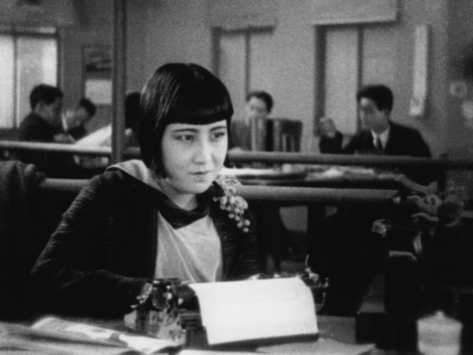
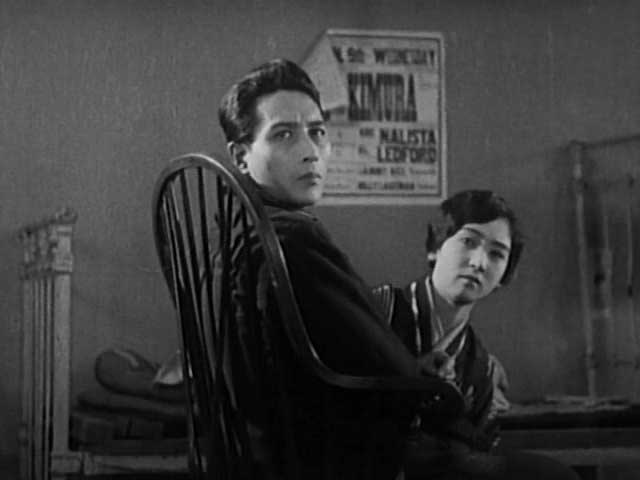
Kenji and Senko live in a small apartment
adorned with boxing posters and one of Clara Bow in a boxing posture. Chieko
comes around at times to plan another job or cozy up to Kenji. When Kenji
and Senko are out one day they spot a big fancy car parked in front of a
jewelry store and a young lady come out, go in and return with a lovely ring.
All Senko can think of is stealing it - but Kenji has been struck by lightening.
The girl Yasue (Hiroko Kawasaki) is in a kimono and takes care of her elderly
mother and young sister. Traditional. Circumstances bring them together and
they become attached until she finds out from Chieko that he is a thug and
has a tattoo of a blade on his wrist - giving him the nickname Kenji the
Knife. She tells him that unless he goes honest to stay away.
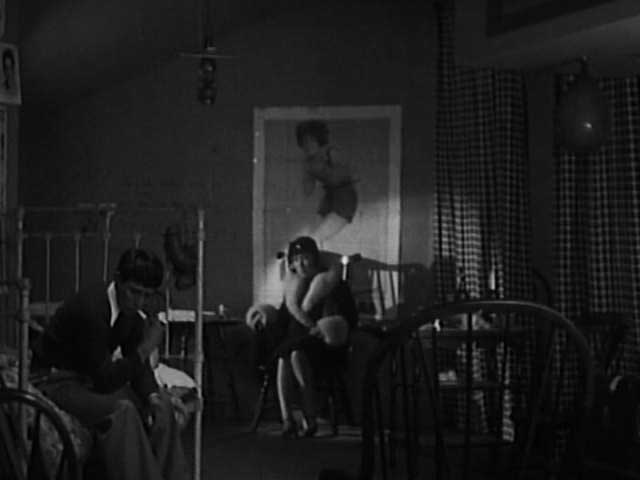
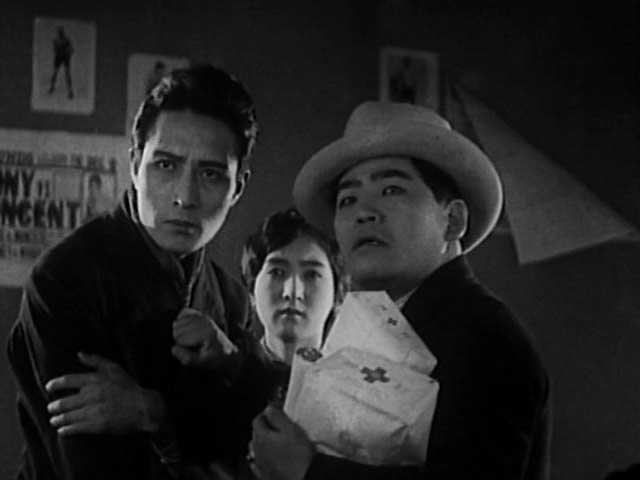
The real love story here though is between
Kenji and Senko as they stick together through everything while Yasue puts
conditions on her love. Early male bonding. With what feels like a fairly
mundane plot today what is still terrific about this film is the detail that
Ozu fills it up with. Little idiosyncrasies like the little dance routines
that friends do to signal their belonging, the hats being put on pegs and
the typewriters being uncovered in unison as the work day begins, playing
pool, a scene in an elevator where Chieko tries to sabotage Yasue by striking
a deal with her boss - and the camera pans down to their feet slowly coming
to an agreement, the posters and lyrics written on the wall to an American
song about Rio and the large amount of location filming. You have to view
this through the prism that this is Ozu still working his way towards his
later very different masterpieces.







